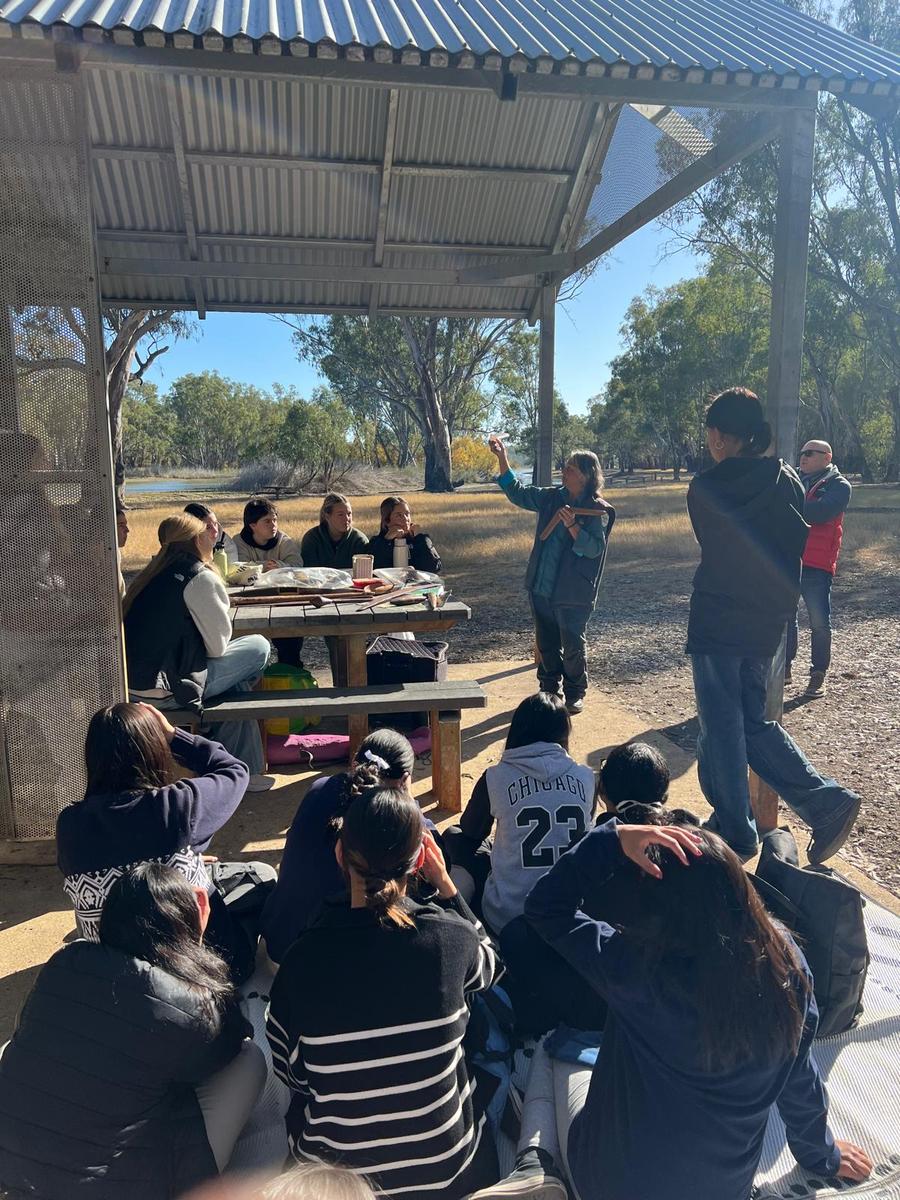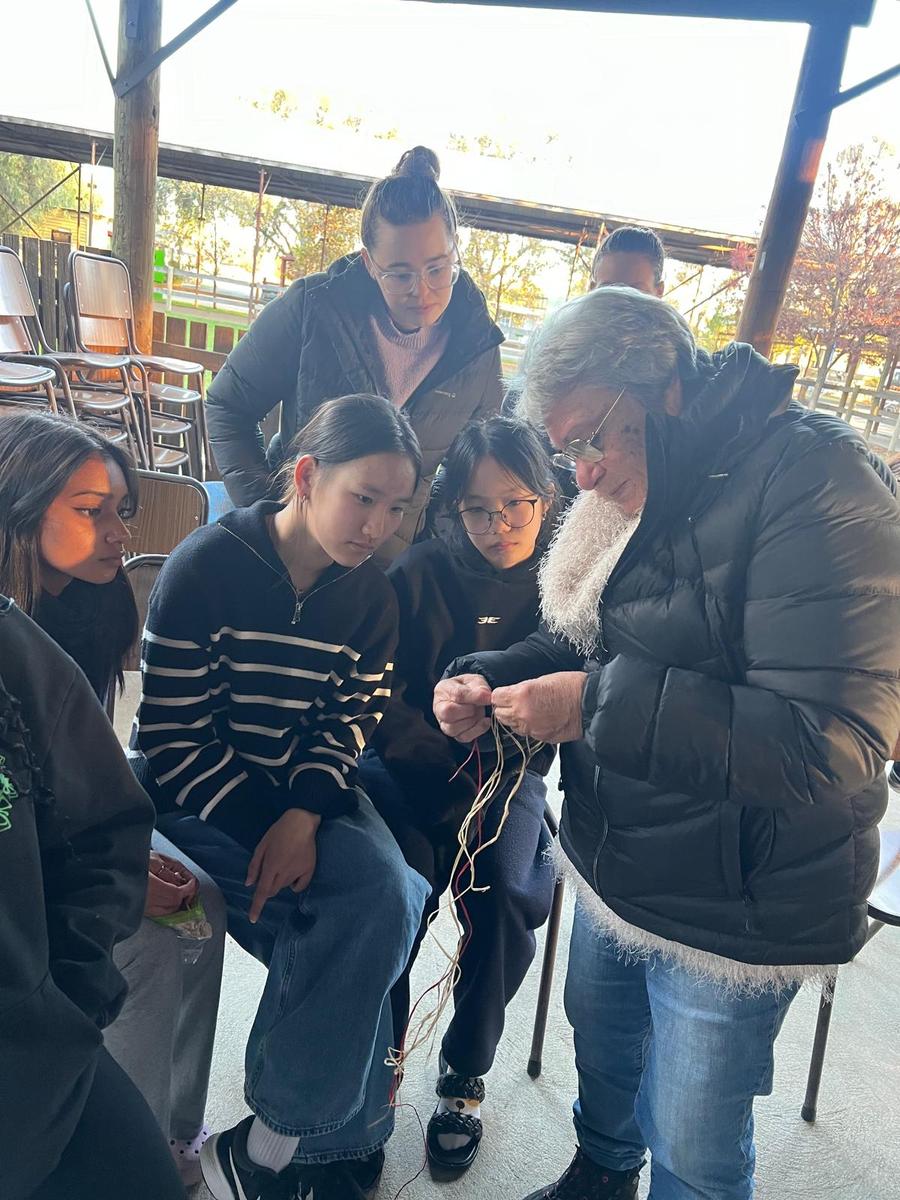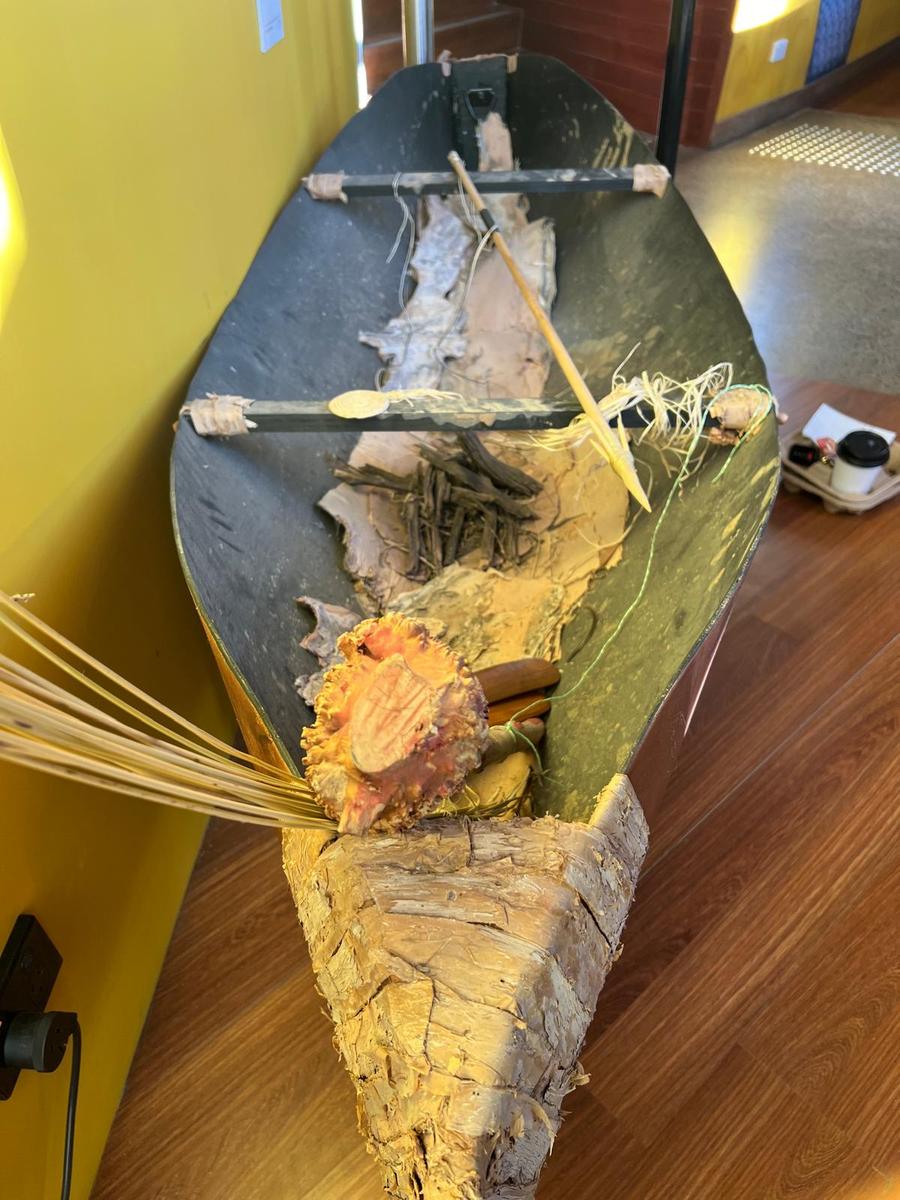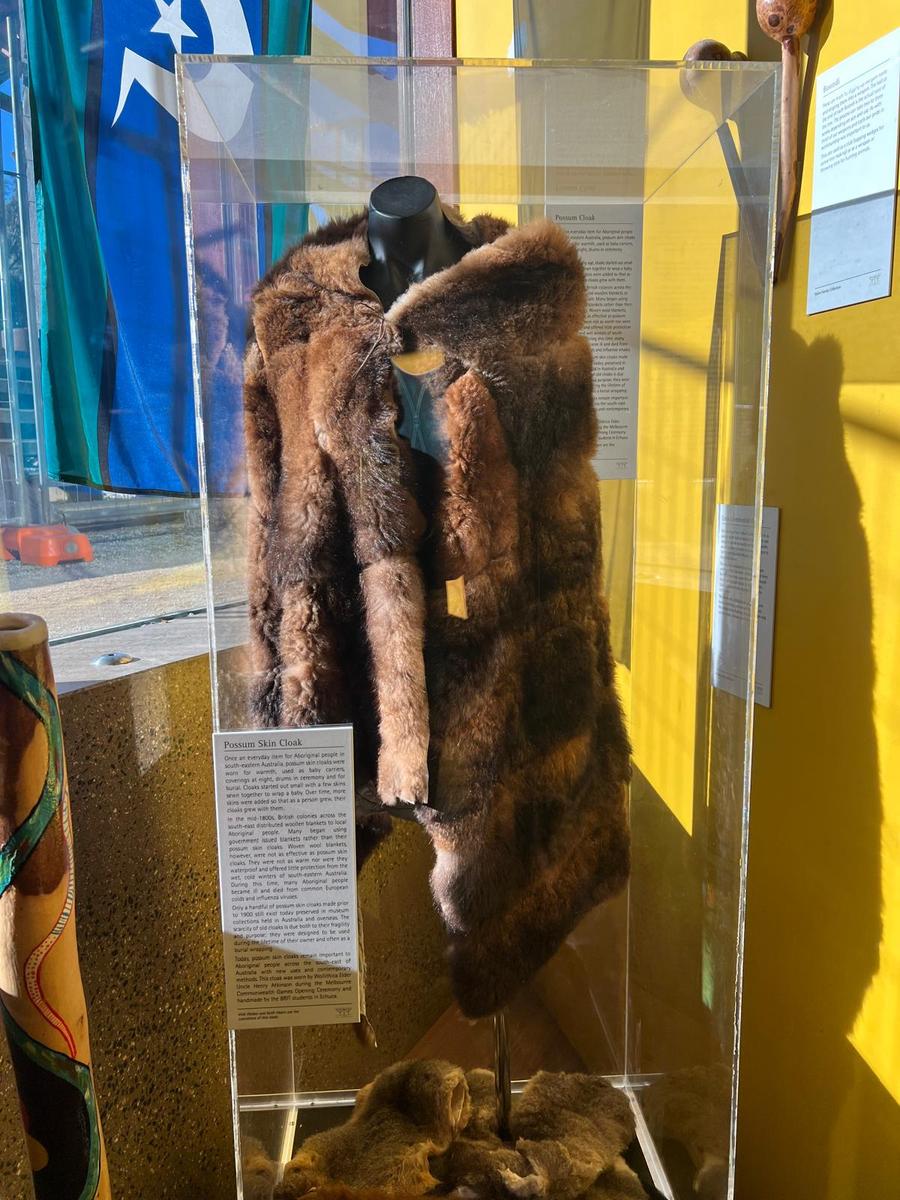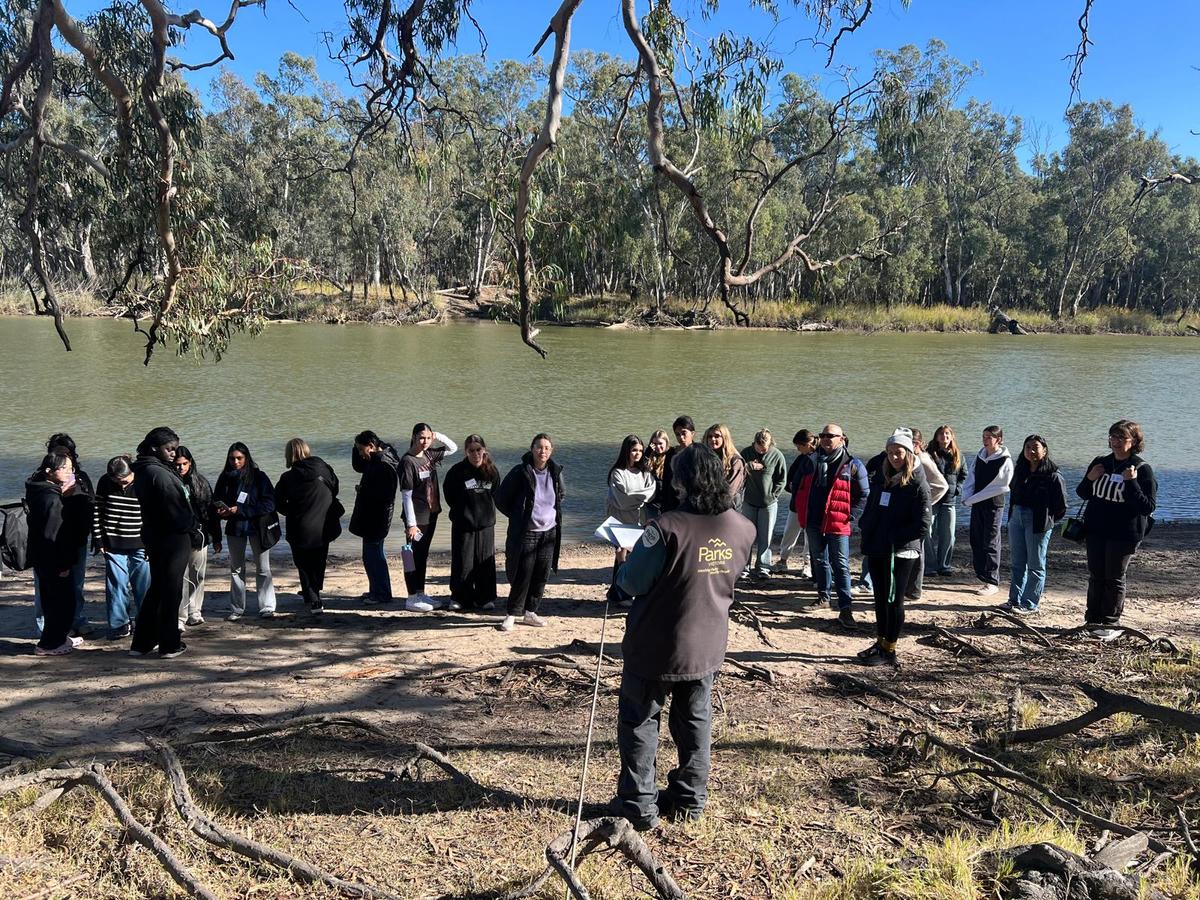First Nations Forum
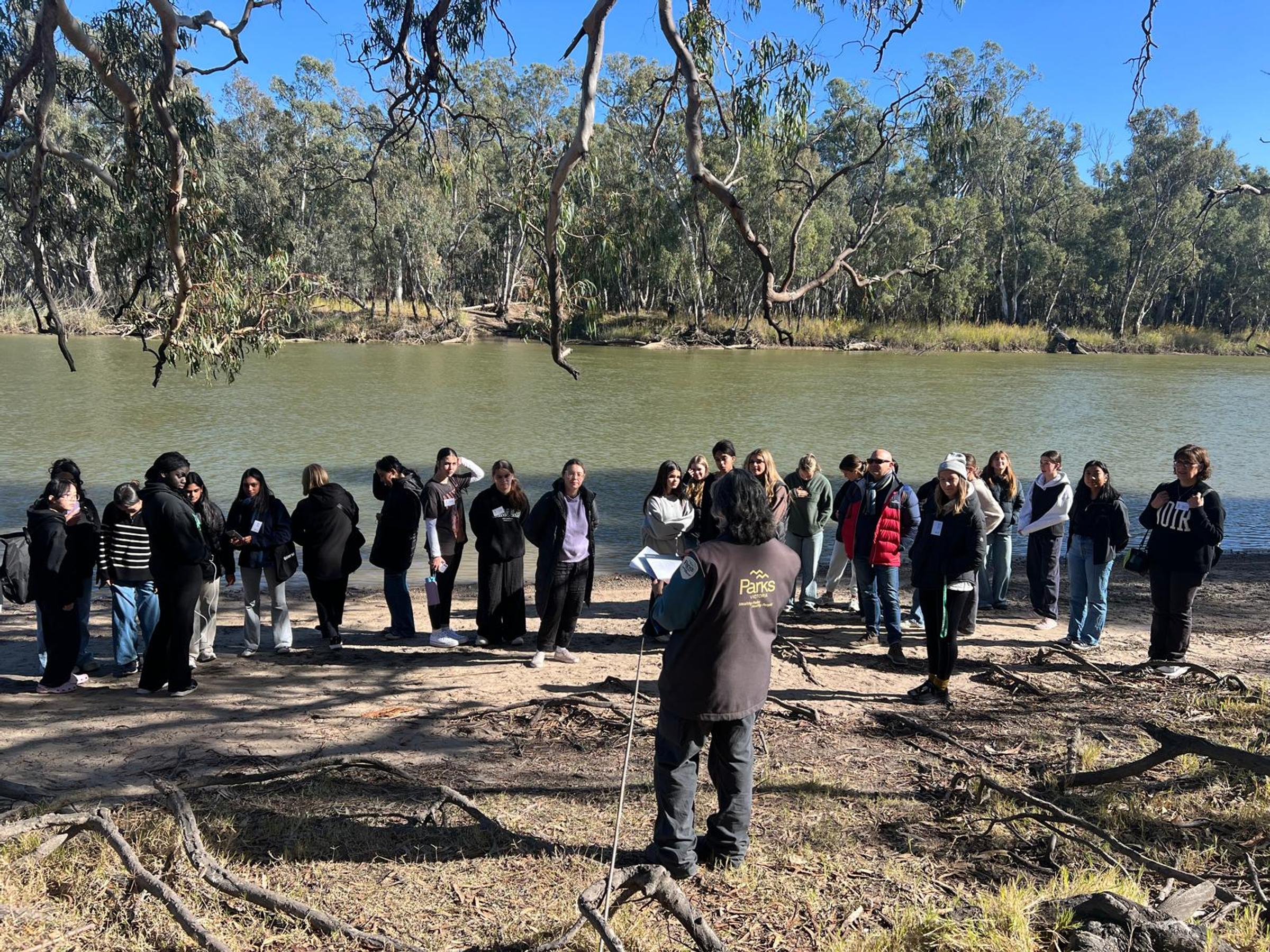
On the 13-15 May students from Brigidine College (St Ives), Kilbreda College, Killester College, Kildare College, Clonard College, Marian College (Sunshine) and St Joseph’s College attended the Kildare Ministries First Nations Immersion at Echuca, Victoria.
It was a super-long day of travel for some, but we all arrived at Billabong Ranch on the evening of the 13th of May and were revived by gathering round the campfire for welcomes, liturgy, dinner and games. After dinner, students settled into the glow of the campfire to watch ‘In my Blood It Runs’ on the big screen before shuffling off to their cabins for much needed rest.
The following day we headed out on a bright sunny day to Barmah Forest, Yorta Yorta Country, and were met by Park Rangers, Aunty Greta Morgan and Aunty Hilda Stewart. Their vast passion, knowledge and wisdom amazed everyone. We all felt that there was no end to what they could have kept telling us. They were able to talk about the history of the landscape drawn from the songlines and stories of their ancestors, and proudly told us of visiting scientists who first debated and then verified these accounts. We learnt about the plants and their uses, what was traded by Yorta Yorta people using the ‘superhighway’ of the rivers to visit other clans and tribes for trade, and what the Yorta Yorta people valued in return. We learnt all about the marine and land animals and how the hunting of the animals was limited to conserve their numbers – not a thing was wasted in daily life. We learned about weapons and clothing and were shown replicas to better understand their role in daily life. We learned about how sacred knowledge was, how as a young aboriginal person you couldn’t forget anything you were taught because the elders would not allow you to forget what was important, the oral traditions were repeated and repeated in dreaming story and song-lines until the young people got it right. Everyone was given their role by the Elders in remembering and was obliged to honour it, but the Elders remembered it all. We talked about the young people ’coming through’ to carry on the teaching and witnessed the Aunties’ great pride in their families and their achievements. And even above all of this, we felt the wonderous beauty of the place where we sat on the edge of the lakes, and we wondered about the great gift of it to the people it sustained for thousands and thousands of years, and for us, in that tiniest sliver of time.
In the afternoon, we were generously hosted for lunch by St Joseph’s College (delicious!). We visited the St. Joseph’s Chapel and Ms. Allison O’Brien explained the collaboration between renowned Aboriginal Artist, Troy Firebrace and St Joseph’s own resident artist (and former student), Alicia Ryan. Students viewed the icons of Brigid, Daniel and Nano, created by this project and saw first-hand the complementarity and blending of the histories and spirituality of both our founders and First Nations people.
It was such a huge day of learning (and only 3pm) so a meditation lead by Alicia Ryan was welcomed by all. The meditation gave us some time to quietly draw and process the things we had seen and shared so far.
After farewelling St Joseph’s College Brigidine Campus, we headed back to Billabong Ranch and learned to weave baskets by the campfire with Aunty Donna Walsh and Aunty Denise Morgan-Bulled in traditional Yorta Yorta ways. As we weaved together round the camp fire, we were mesmerised by the stories of growing up Aboriginal in Echuca that Aunties Donna and Denise told us. The casually accepted racism of the times was gobsmacking for most, and the silent respect for these wise, generous women as they spoke was palpable. We are so grateful for their knowledge and willingness to share both the happy and the sad parts of their growing up years.
Our last activities on the final day were held at the Port of Echuca Wharf. We visited the Discovery Centre which tells the story of the role of steam in the colonisation of the area and then walked the Discovery trail to witness the structure of the wharf and the paddle-steamers first-hand.
Finally, in the morning sunshine, on the mighty wharf with the glittering Murray River below us, we participated in a liturgy which imagined life ‘before all this steam-built development’ and what it’s coming might have meant to the people who originally lived there. We considered the importance of the river to those who were there first, and compared the ways it was important for the ones who settled there later– we considered how important water was for us today, and how we are only now beginning to recapture its sacredness in our lives in the ways First Nations people saw it for thousands of years.
***
Spending time on country and being taught by First Nations elders and teachers is an irreplaceable learning experience. Both Aunty Greta and Aunty Hilda hinted that there may be things that will be immediately forgotten about the things they learned in those days, but there will come a time when the experience will return to them in the light of a new discovery or by some related new knowledge. Spending time in the gentle company of Aunty Donna and Aunty Denise around the campfire with personal stories of funny times and heart-breaking times created a deep impression that will also return to our students. In all their new learning, it was the experience of being there that set the scene of our interconnectedness, and will make that learning memorable, meaningful and compassionately considered again in the future.

